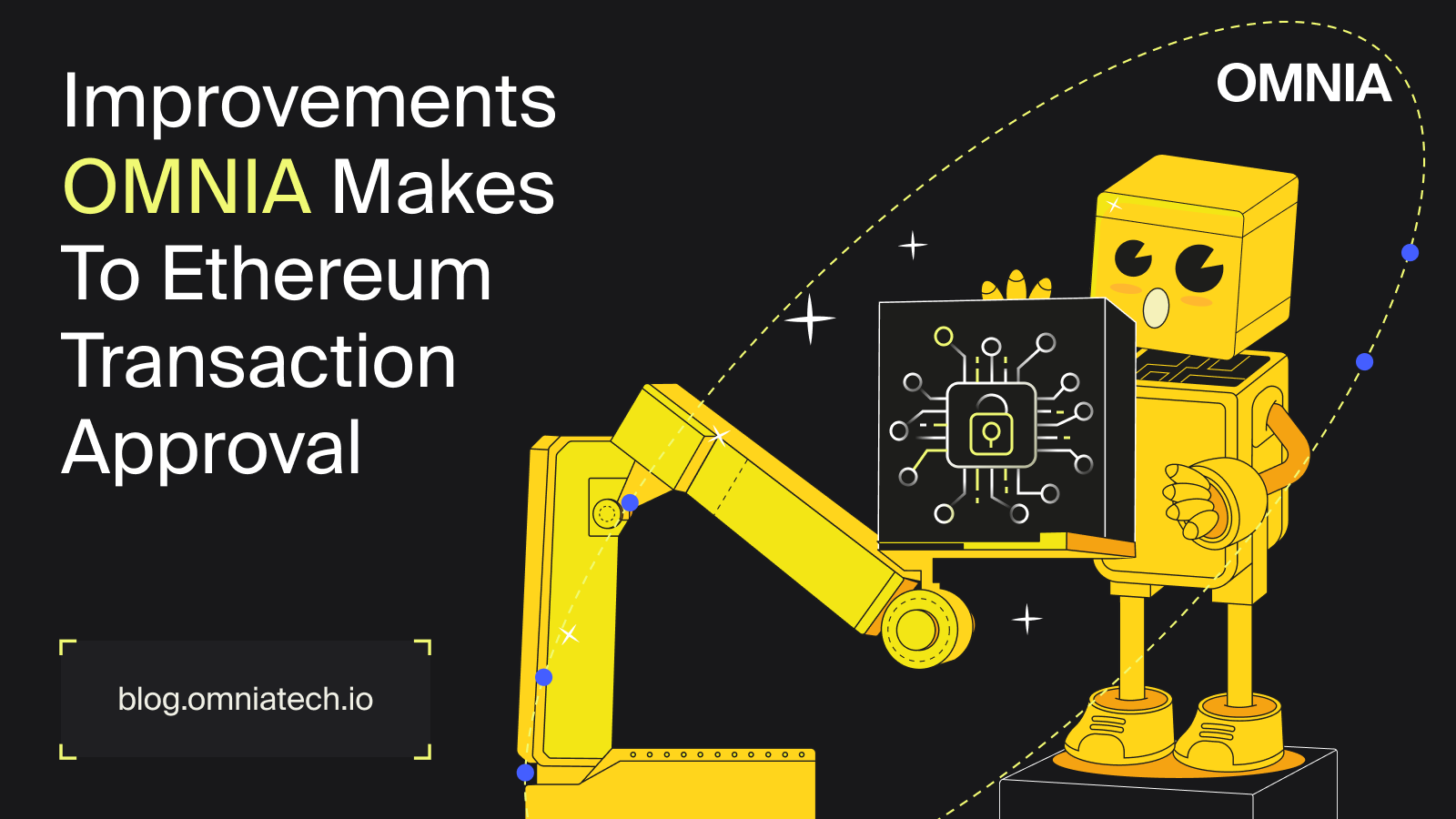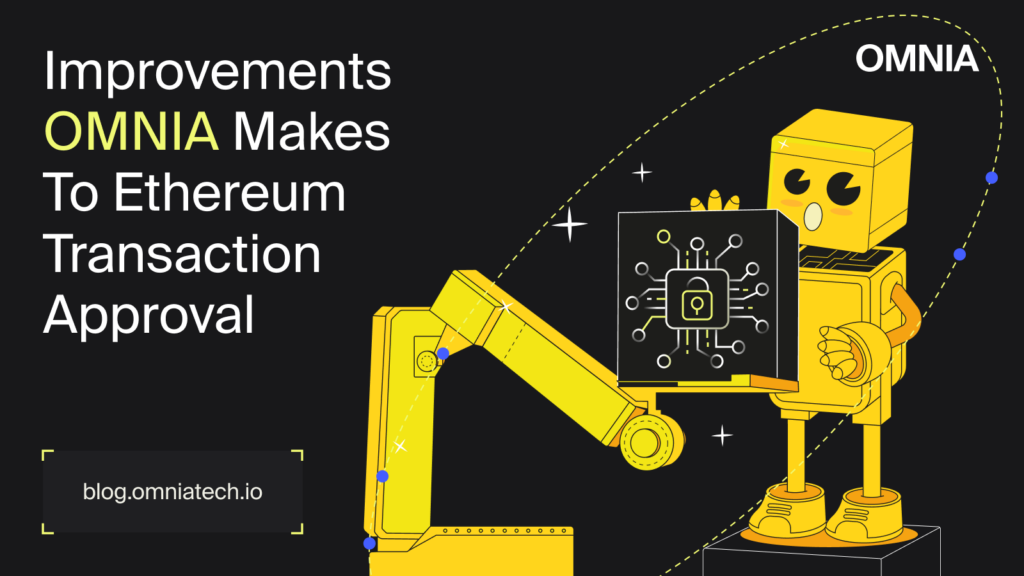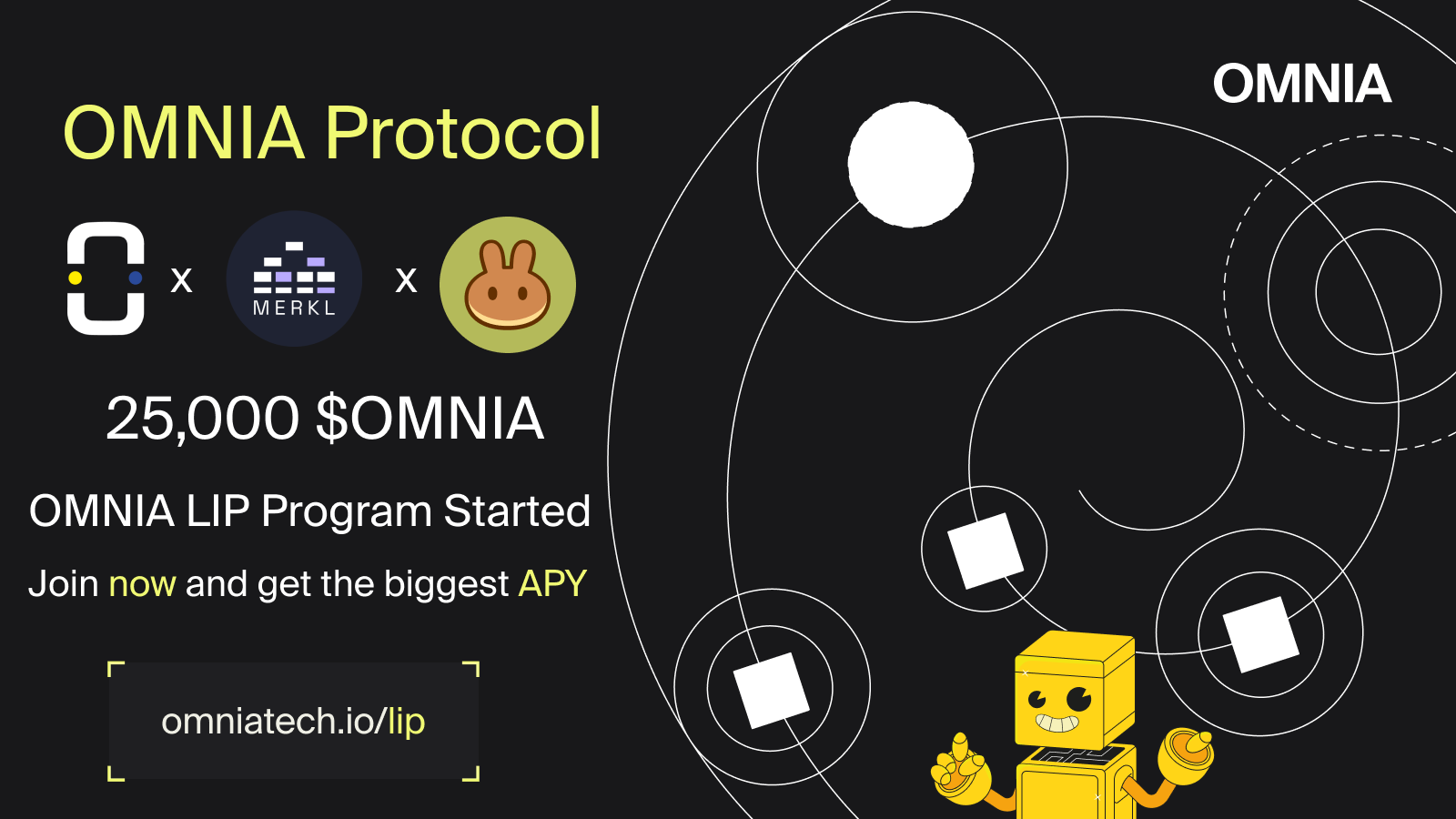
Improvements OMNIA Makes To Ethereum Transaction Approval

Since its launch in 2015, Ethereum has become the perfect model that all networks decided to emulate. You don’t hear the phrase “our network will be the next Ethereum” in the crypto industry so often for no reason.
The most revolutionary aspects of the Ethereum network were its cutting-edge self-executing smart contracts and ability to launch sophisticated applications – the former is what we’ll focus on today.
All apps on Ethereum need permission from wallet owners to work. These permissions are granted by signing transactions with private keys. Naturally, this gets annoying after a while, especially when it comes to repetitive tasks.
Enter the transaction approval mechanism that retains the securities of funds while simplifying the whole process. In the simplest terms possible, executing smart contracts requires sending a set of instructions to another smart contract, which triggers the execution in accordance with predefined conditions. This is basically how DeFi applications work.
Still, while this system was robust and held up pretty well for close to a decade, 2015 was a different time, and there are still risks associated with non-updated approvals.
Risks of using non-updated approval
As said earlier, token or transaction approval allows smart contracts to operate with a predetermined amount of tokens. As an example, look at any DeFi protocol where you receive a prompt to provide the platform with access rights to some of your tokens. In this case, the DEX acts as an intermediary between yourself and the buyer/seller.
This keeps things fair, as no party has access to your tokens without you first giving the go-ahead.
Apart from DEXs, a transaction approval mechanism is also important in other applications where trusted management of your funds is required. Think staking smart contracts, lending protocols, and custodian solutions, among other things.
However, it’s easy to see how this function can be exploited by others for nefarious reasons. Scammers have the means to use sophisticated phishing techniques to deceive unassuming users into thinking they’re approving the right spender – accidentally providing full access and control to hackers dead set on stealing their valuable tokens.
It only escalates from there. You should also be aware of spear-phishing, a method where scammers already know about your intention to use a particular platform. For instance, they may follow your activities and figure out if there’s an IDO you’re hyped about, only to strike when you least expect it.
Lastly, there’s always a risk involved over the platforms themselves being compromised.
No matter how safe the platform is, the source code can be injected with scam spender addresses. This is very concerning as even if you’re super vigilant and review the URL multiple times to check if everything is in order, the malicious code can trigger your crypto wallet to approve the scammer’s address.
No amount of due diligence in the world can save you from becoming a victim of scams when using non-updated token approval methods.
Example of a token approval exploit
How scary is this exploit?
Look no further than the SushiSwap exploit back in April 2023, a reputable DEX that wasn’t impervious to this simple weakness in the transaction approval process.
What happened was that the hacker successfully exploited an approval-related bug in the RouterProcessor2 smart contract. The contract failed to validate the route parameter users were sending for a particular function. The hacker then changed the lastCalledPool variable to the address of their pool.
This reentrancy attack resulted in $3.3 million of funds being stolen.
Just like that. Due to a flaw in the swap approval function, a bunch of traders lost their valuable assets and they didn’t even see it coming.
Worst of all, this exploit affected 14 chains, including BSC, Ethereum, Gnosis, Polygon, and so on.
Is there a way you can save yourself from becoming a victim of such a crime?
Why, yes there is!
OMNIA Protocol to the rescue
It’s no longer 2015 and there’s no reason why you should navigate the blockchain unprotected. You wouldn’t jump from a plane without a parachute, right?
Enter OMNIA Protocol, a decentralized infrastructure protocol purposefully designed for accessing the blockchain safely. By relying on our intricate system, you can ensure there are no points of failure that could disrupt apps or wallets integrated with the blockchain.
In general, we understand that there are plenty of hidden risks and flaws involved in Web3 as the chain is only as strong as the weakest link. That’s a necessary evil in a decentralized system.
We get what you may be thinking, though. How is it possible to enhance the on-chain security without centralization?
The answer lies in RPC endpoints that can access the blockchain securely. OMNIA provides you with a secure high- availability RPC endpoint to access the blockchain without being traced or monitored.
Plus, we implemented a slew of security features that enhance the Ethereum approval function and minimize the chance of your wallet being compromised.
Power of OMNIA real-time checks
In general, OMNIA’s token approval protection secures traders’ funds through safe RPC endpoints that can cut the transaction while also providing instant alerts against shady tokens.
Our real-time checks are performed for every transaction that runs through the system, detecting if you’re approving a malicious address and halting the transaction if needed.
The checks review the spender’s address to see if they are associated with malicious activities such as phishing attempts or token thefts. If any of these are discovered, the OMNIA RPC endpoint returns an HTTP 514 error, signaling a security issue and sending a notification to relevant parties – thereby stopping a chain reaction and keeping the damage to a minimum.
This protects not only ERC-20 tokens but also NFTs by the ERC-721 and ERC-1155 standard tokens. Pretty much all bases are covered.
A safer way to trade
You have the power to not become prey to a scammer or a hacker when involved in DeFi trading. These individuals are getting more and more sneaky as each day passes, so relying on an outdated transaction approval system is a recipe for disaster.
OMNIA Protocol can act as a shield against these exploits and reduce the chance of losing your assets due to a fault in the system.
If we were around, would the SushiSwap fiasco occur? We’re confident our security checks would have stopped the issue before it got out of hand.
Try it out – better to be safe than sorry!
About OMNIA Protocol
OMNIA is a leading RPC provider specializing in decentralized physical infrastructures (dePIN), offering unique incentives and rich features such as custom RPC and security checks. Our user base is currently exceeding 3 million monthly active users and we are processing over $3.1 billion monthly in volumes.


